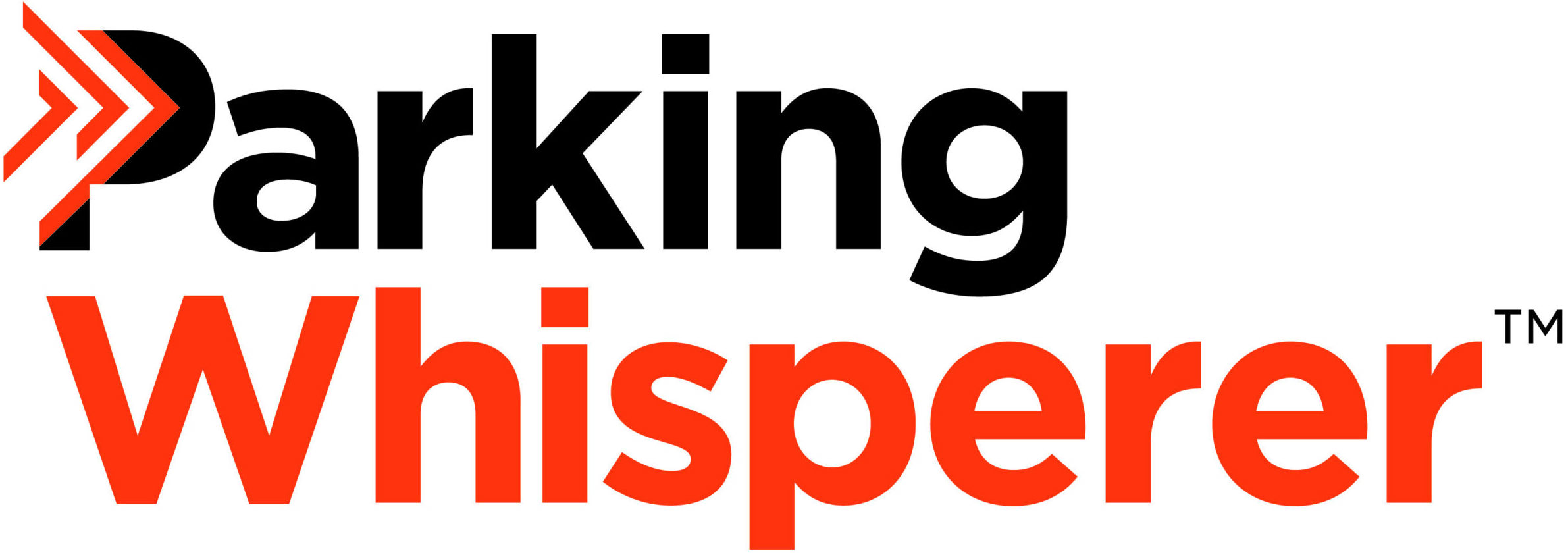
by John Oglesby
Having managed special parking operations for the 2010 Vancouver Olympic Games and dozens of professional sports venues across Major League Baseball, the National Football League, the National Hockey League, and the National Basketball Association, we at Parking Whisperer have identified the most consistent critical challenges that parking operators will face.
Whether you’re managing parking for a major league stadium, coordinating operations for a large-scale festival, or overseeing venue logistics for corporate events, the challenges remain remarkably consistent. From traffic-flow nightmares and technology failures to revenue protection and customer service opportunities, event parking operations face unique pressures that make or break the entire guest experience. This comprehensive guide shares the 10 most consistent critical challenges in operations, strategic management, and guest experience and client management and provides proven strategies to overcome them, along with essential pre-event planning protocols that can prevent most problems before they occur.
Operational challenges
1. TRAFFIC FLOW AND CONGESTION
The challenge: High volumes of vehicles arriving within short time windows can overwhelm traffic signals, parking facilities, and access roads, leading to gridlock and frustrated fans.
Impact:Poor traffic flow creates safety concerns, delays venue entry, and generates negative customer experiences that damage reputations, including that of the team!
Solutions:
• Develop adjustable, comprehensive ingress/egress plans with multiple entry/exit points.
• Install clear, reflective, permanent, and temporary signage well in advance of events.
• Coordinate with local traffic authorities to manage road closures and detours.
• Prepare for all kinds of weather: Don’t trust the forecast.
2. STAFFING AND TRAINING
The challenge: Events require large temporary staff to direct traffic, process payments, and enforce rules. Poorly trained crews create bottlenecks and service failures.
Impact: Understaffed or undertrained operations lead to slow processing, fan complaints, and safety issues.
Solutions:
• Hire adequate staff — at least 50% more than is expected to be needed initially — and cross-train them all, to account for inevitable staffing shortages.
• Implement comprehensive ambassador fan training that goes beyond parking information.
• Train all employees in conflict de-escalation techniques.
• Provide staff with frequently-asked-question (FAQ) cards covering such topics as restrooms, venue entrances, a clear bag policy, and the like.
• Establish clear protocols for handling first-time and special needs fans with patience.
Ambassador fan training essentials:
• Fan service fundamentals, beyond simply customer service
• Quick responses to the most asked questions and answers
• De-escalation techniques for angry fans and those who are impaired
• Emergency procedures, 24/7 contact information, and a transparent chain of command
• Critical event information, including schedules, amenities, policies
3. PAYMENT PROCESSING AND TECHNOLOGY
The challenge: Payment systems must handle high transaction volumes quickly while maintaining reliability and audit protocols, but outages, connectivity, and inadequate battery life can cripple operations.
Impact: System failures result in lost revenue, long queues, frustrated fans, unhappy clients, and security vulnerabilities.
Solutions:
• Test and retest all systems, including mobile apps, radios, gates, license plate recognition (LPR), and LED signage before each event and after each homestand.
• Maintain backup power sources and redundant connectivity options.
• Keep adequate change funds when cash is accepted.
• Establish real-time monitoring and quick system resets with redundancy.
• Train all staff on manual procedures to be followed in the event of tech failures, inclement weather, and worse.
4. SPACE MANAGEMENT AND CAPACITY PLANNING
The challenge: Balancing advance sales, VIPs, media, and walk-ups while avoiding overselling or underutilization requires precise planning.
Impact: Overselling leads to denied entry and angry customers, while consistent underselling can cost your relationships.
Solutions:
• Monitor pricing and allocation strategies based on opponent, day of week, weather, and promotions.
• Create multiple flexible overflow plans that can be activated quickly.
• Eliminate the “LOT FULL” mentality — always provide options and alternatives.
• Monitor `patterns to optimize space use for different events.
• Always have a few extra spaces tucked away.
Strategic management challenges
5. SAFETY AND LIABILITY
The challenge: High-density events create numerous safety risks, including pedestrian-vehicle interactions, crowded areas, and distracted fans.
Impact: Accidents result in injuries, liability, insurance claims, and severe reputational damage.
Solutions:
• Conduct regular safety audits of all areas and pedestrian pathways, official and unofficial.
• Ensure adequate lighting in all areas, especially walkways and exchange zones.
• Implement strict cell phone policies to prevent distraction-related injuries.
• Document safety issues promptly and address them proactively.
• Establish clear emergency response procedures and maintain current contact lists.
6. SIGNAGE AND WAYFINDING
The challenge: Customers need clear guidance to lots, entrances/exits, and amenities, but poor signage creates confusion and delays.
Impact: Signage issues result in lost fans and revenue and increased congestion.
Solutions:
• Use static and LED signage, both of which should be reflective and weather resistant.
• Ensure all signage is bilingual and can be read quickly.
• Replace faded, damaged, or inaccurate signs.
• Create consistent visual standards using team colors and logos.
Signage investment principle: Quality signage is inexpensive compared to costs from accidents, liability issues, or fan and client dissatisfaction.
7. STAKEHOLDER COORDINATION
The challenge: Successful operations require seamless coordination among the client, venue security, police, city traffic management, and mobility and rideshare services.
Impact: Poor coordination disrupts traffic flow, creates safety issues, damages relationships with key partners, most importantly the team and the driving public.
Solutions:
• Maintain at least two 24/7 contact numbers for every jurisdiction and organization.
• Understand jurisdictional boundaries and potential departmental conflicts.
• Include all relevant parties in communication channels and planning meetings.
• Document all agreements and instructions with email confirmations.
• Respect organizational hierarchies while treating all partners professionally.
8. VIP AND SPECIAL ACCESS MANAGEMENT
The challenge: Ensuring compliance with the Americans with Disabilities Act (ADA), providing VIP services, facilitating media access, and ensuring emergency vehicle access all require specialized protocols to be executed flawlessly.
Impact: Mismanagement can result in unhappy fans, media issues, legal concerns, complaints, and severe reputational damage with clients and fans.
Solutions:
• Post clear protocols for each type of special access need.
• Use color-coded signage that matches VIP pass designs.
• Create temporary ADA spaces for high-demand events.
• Train staff specifically on special access procedures and excellent fan service.
Customer experience and client management
9. CUSTOMER EXPERIENCE AND REPUTATION
The challenge: Long wait times, poor staff interactions, or unclear procedures generate negative reviews and damage relationships.
Impact: Poor fan experience — real or perceived — leads to complaints, negative online reviews, and loss of multiple client contracts.
Solutions:
• Implement post-event surveys through multiple channels for every event.
• Train all employees in complaint resolution and fan service response.
• Provide employee amenities, including break schedules, refreshments, and communication tools, to maintain service quality.
• Develop standard operating procedures for all fan service scenarios.
10. REVENUE CONTROL AND LOSS PREVENTION
The challenge: Cash handling risks, unauthorized parking, and system vulnerabilities can significantly reduce revenue and create audit issues.
Impact: Revenue losses from theft, underreporting, and unauthorized access directly affect profitability and client relationships.
Solutions:
• Implement robust cash-handling procedures with regular auditing.
• Use real-time monitoring systems to track revenue and identify discrepancies.
• Deploy multiple verification methods to prevent unauthorized access.
• Conduct regular reconciliation and maintain detailed audit trails.
Murphy’s Law
Remember: No matter how well you plan, unexpected challenges will arise. Weather forecasts change, supply chains fail, and “the way we’ve always done it” will not work.
Preparation rules:
• If you haven’t personally verified something, don’t report it as fact.
• Arrive 10 minutes early to every event and expect your team to do the same.
• Maintain backup solutions for every critical system and process.
• Look for possible challenges no matter how unlikely
• Address problems immediately: Unlike wine, bad news doesn’t improve with time.
The bottom line
Success in special event parking requires thorough preparation, clear communication, and the flexibility to adapt as things don’t go as planned. Every fan interaction, whether they park with you or not, reflects on the team. By addressing these 10 challenges, you can consistently deliver best-in-class service that keeps clients satisfied and contracts renewed.
Remember: For your client’s fans, you are their first and last impression. Make it count.
PRE-EVENT PLANNING PROTOCOLS
Essential preparation checklist
Communication and coordination:
• Confirm all stakeholder agreements in writing.
• Update all contact lists with current 24/7 numbers.
• Test communication systems and backup methods.
• Brief all staff on event-specific procedures and expectations.
Equipment and supply verification:
• Test all technology systems and backup power sources.
• Verify adequate signage placement and condition.
• Ensure sufficient cash funds and payment processing capability.
• Check safety equipment and emergency supplies.
• Prepare weather contingency supplies, including umbrellas and rock salt.
Operational readiness:
• Complete final site inspection and document any issues.
• Verify staffing levels and backup coverage.
• Review overflow and emergency procedures with all team members.
• Establish transparent reporting chains and problem-resolution protocols.
• Repeat these steps again.
JOHN OGLESBY is the founder and CEO of Parking Whisperer. He can be reached at CEO@ParkingWhisperer.com.
*This article originally appeared in the October edition of Parking Today* https://parkingtoday.com/segments/event/top-10-special-event-parking-challenges-an-operators-guide/

Comments are closed